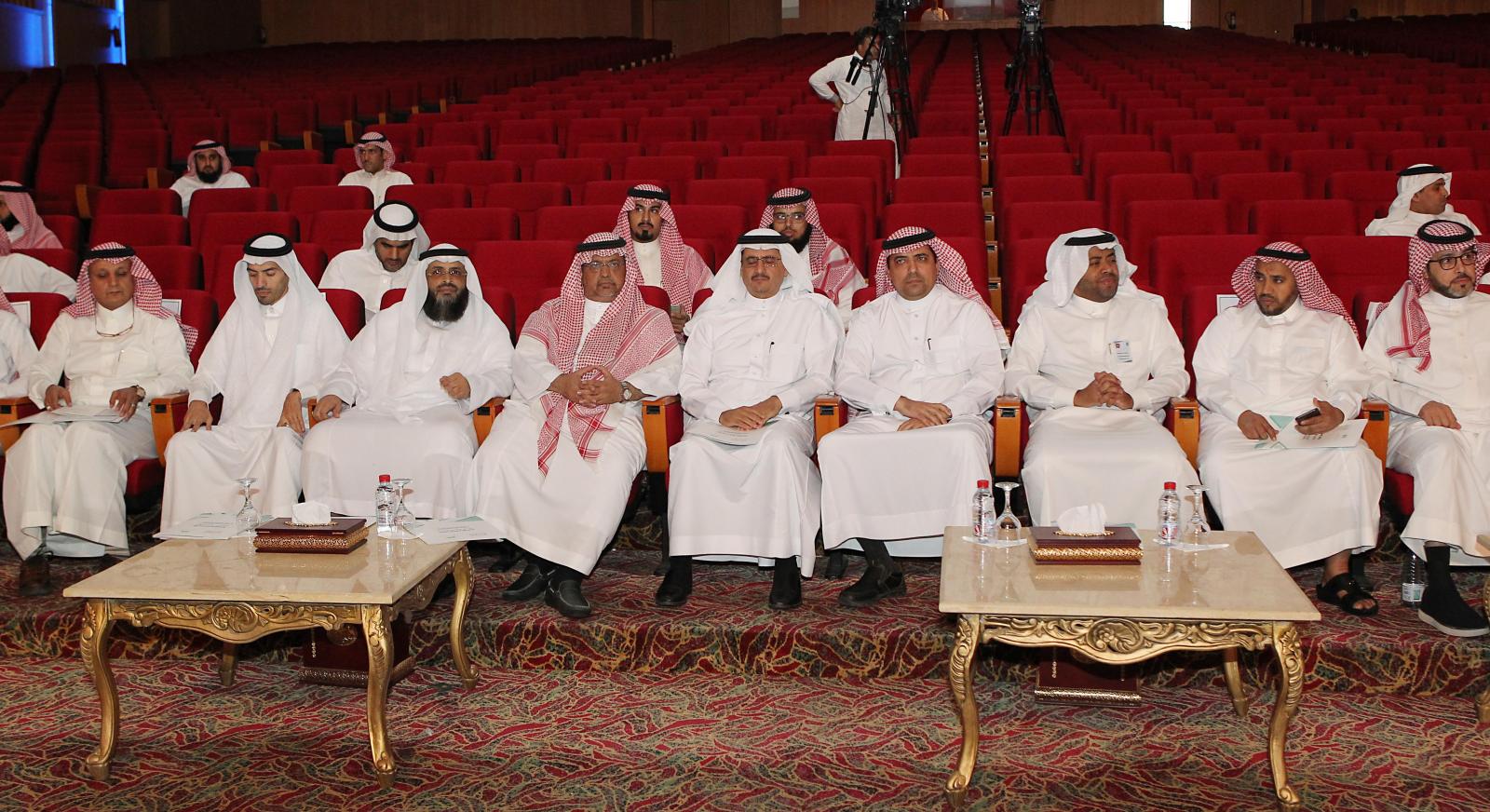
The UQU College of Education organized, in cooperation with the Education Assessment and Training Commission, an introductory program on the national criteria of the public education curricula. The program was attended by Dr. Muhammad Al-Obaidy, Supervisor General of Criteria and Professional Licenses; Dr. Hayaa Al-Omrany, General Manager of the Education Curricula Criteria Program; Dr. Aly Al-Matrafi, Dean of the College of Education; and the academic team in King Abdul Aziz Historical Hall at Al-Abdiyyah Campus.
Dr. Muhammad Al-Obaidy, Supervisor General of Criteria and Professional Licenses, clarified that this program stems from the strategic plans of the Commission. It was designed to introduce the academic team to the national criteria of the public education curricula program and the professional licenses criteria program, which contribute to raising the quality of educational outcomes through the conscious handling of scientific and technological changes and positive participation in the fulfillment of the Saudi Vision 2030. He wished all the participants good luck and success.
Dr. Hayaa Al-Omrany, General Manager of the Education Curricula Criteria Program, then said that the objective of this meeting was to introduce the criteria of the national curricula and the professional licenses program. It is an initiative of the Commission for sharing its programs with all the universities and for filling the gap between future guidelines and university guidelines to direct scientific research carried out by academic staff and postgraduate students in that field.
Next, the introduction of the national criteria for the public education curricula started. Dr. Farid bin Aly Al-Ghamidy, a member of the academic team representing Islamic education, explained how Islamic education is a comprehensive system. It includes concepts, values, and skills represented in creed, worship, and morals, and is based on the Noble Quran and Sunnah. He clarified its objectives and the guidelines of its teaching and learning.
Later, Dr. Muhammad Al-Dosari, Head of the Art Education Section, made a presentation on the current status of art education and international experiments in that field. He pointed out that the knowledge structure in art education in Saudi would be based on two ideas: artistic production, which includes drawing and colors, structure and molding; and digital art, represented in design and art. This takes into account both functional and artistic aspects, responding to art as a means of knowing the other, discovering art in different visual contexts, saving and displaying artistic works, understanding and analyzing them, and applying criteria in evaluating them.
Following the same thread, Dr. Ibrahim Al-Qarni, head of the English language team, made a presentation on the importance of the English language, including the reliance on communicative methodology in teaching it, comprehending its culture, providing teachers with the necessary strategies for developing and improving students' critical and creative thinking skills, and employing technology in teaching it.
For his part, Dr. Ahmad Al-Faqih, head of the Arabic Language Section, talked about the Arabic language program that is currently developed to keep pace with international guidelines in teaching and learning languages. He also talked about analyzing international documents for teaching and learning languages, and building content and performance criteria for academic grades in public education. He added that the performance criteria for teaching the Arabic language are being connected with common dimensions that include the curriculum priorities and common values and skills.
At the conclusion of the workshop, Dr. Aly bin Muslih Al-Matrafi, UQU Dean of College of Education, expressed his appreciation for the support and instructions of His Excellency Dr. Abdullah bin Omar Bafail, UQU President, praising the efforts and effective participation of all the participants in the program.